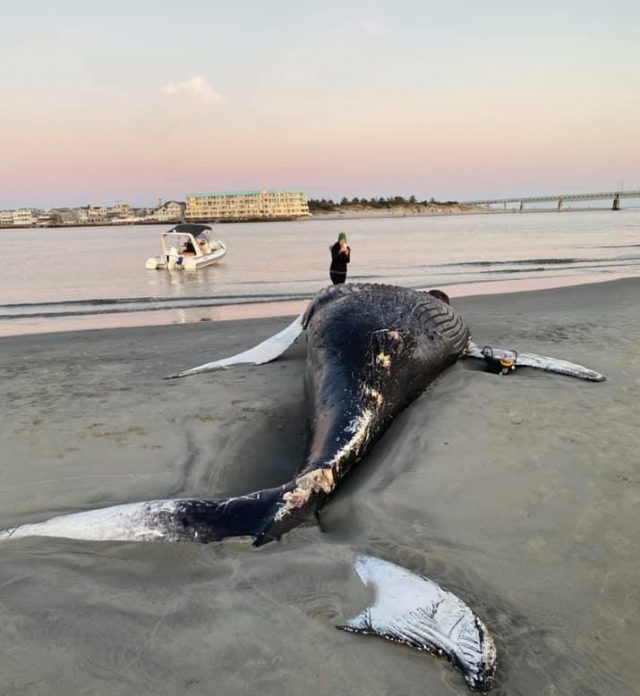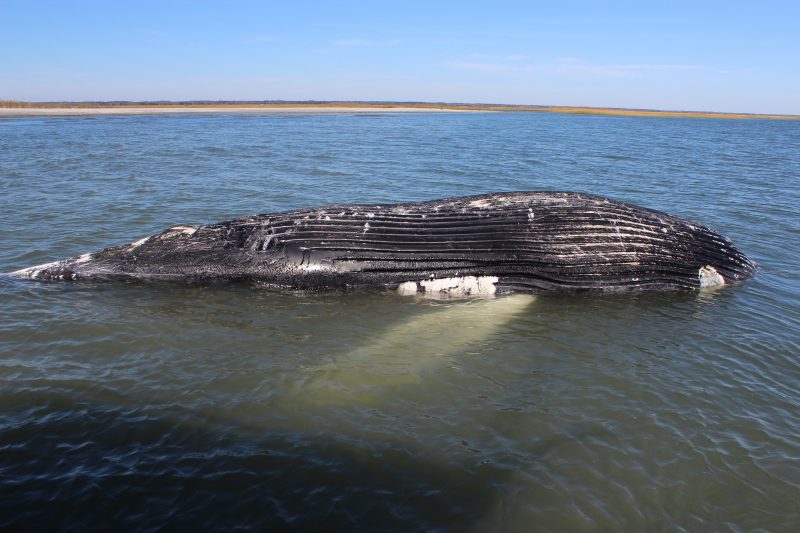
By DONALD WITTKOWSKI
The carcass of a humpback whale remains stuck on a sandbar between Sea Isle City and Avalon and will simply stay there for now while it decomposes, a marine wildlife official said Sunday.
Currently, there are no plans to try to remove the estimated 25-30 foot, two-ton whale from the sandbar in Townsends Inlet, the channel separating the two towns.
“We haven’t gotten any recent calls about the whale moving from that location,” said Mackenzie Peacock, a field stranding technician at the Marine Mammal Stranding Center in Brigantine.
Marine wildlife experts haven’t been able to conduct a necropsy on the whale yet to determine the cause of death. The humpback is believed to be a female, Peacock said.
Photos posted on social media show curiosity seekers posing next to the whale on the sandbar, which is accessible by boat. The carcass is not considered hazardous unless someone touches it and risks contracting bacteria from it, Peacock noted.
“It’s part of the ecosystem now,” she said of the whale’s remains.
The whale was first spotted floating in Townsends Inlet on Nov. 4 and appeared to have been dead for at least several days.

Bite marks were seen on the carcass, suggesting that sharks were feeding on it before it became stuck on the sandbar.
There is a possibility that unusually high tides caused by the new moon Sunday night could lift the whale off the sandbar and sweep it back into Townsends Inlet and eventually take it out into the ocean, Peacock said.
Another possibility is that the carcass may wash up on the beach on the Sea Isle or Avalon side of Townsends Inlet if the tide moves it off the sandbar. In that scenario, the town where the whale ends up would be responsible for disposing of the remains, Peacock said.
Normally, whale carcasses are buried on the beach. Sea Isle buried a 33-foot humpback whale that washed ashore near the 20th Street beach in September 2016.
Typically, about a dozen dead whales wash ashore or are discovered dead in the waters along the Jersey Shore each year, Peacock said.
In September, a humpback whale was found dead in the water near Brigantine after becoming entangled in fishing gear.
Humpback whales are common at the Jersey Shore throughout the year. Their presence is a sign of a strong ecosystem, Peacock explained.







